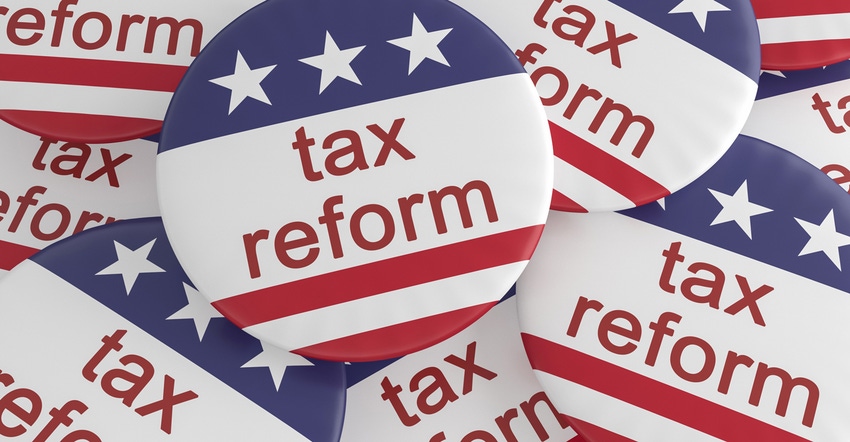
Rep. Roger Marshall, who represents the Big First of Kansas, the nation’s largest agricultural district, was enthusiastic about what he says will be the huge benefits for Kansas in the tax reform bill that passed the U.S. House of Representatives on party line vote Thursday.
Marshall, who spoke to reporters in a conference call just minutes before the vote, insisted that the tax proposal is “not at all” like the Brownback experiment of the past 8 years, which has seen Kansas sweep almost every dollar of reserves in every department into the effort to fill the gaping hole the measure left in the Kansas budget.
Kansas is still short of money for basic road infrastructure repairs, having spent the Department of Transportation’s 20-year investment fund, as well as an additional $500 million in bonded borrowing, to fill the budget hole.
Faced with no way around the shortfalls, the Kansas Legislature in 2017 overrode a Brownback veto to roll back the majority of his signature cuts.
Marshall says the Kansas plan “zeroed out” income tax on LLCs while leaving a tax on C-Corps, which encouraged more than 1,000 Kansas business to simply change structure to avoid taxes. The House bill, he says, simply reduces the tax for LLCs and provides no incentive for businesses to re-organize to avoid taxes.
He says another difference is that Kansas did not have enough offsets of tax loopholes and the House bill has a “lot of pay-fors” built in that will offset the deficits created by major cuts for corporations and some reductions to certain taxpayers.
He says Kansas families will get major tax relief from the increase in the standard deduction, saying “more than 80%” of taxpayers in his district do not itemize deduction and will see a major benefit from a reduced tax bill.
At the same time, he says, a reduced tax on businesses will lead to increases in investment in new facilities, more workers and higher wages.
“When you lower taxes on business, they invest those savings back into the business and the workers,” he says.

ROGER MARSHALL

Marshall cited the example of Texas, which he said has seen an economic boom from eliminating the income tax and creating a “real set-up where businesses win,” while at the same time getting people off welfare and “having almost nobody on Medicaid.”
He praised President Trump for “running 90 miles ahead and already focusing on infrastructure that can really get the country moving, and maybe doing welfare reform to make sure we aren’t rewarding people for not working.”
He said the Trump administration is already shrinking government, rolling back regulations and shrinking the EPA. “There’s a whole floor of the building with empty offices,” he says. “People who have quit or resigned are not being replaced. We will see an EPA half the size it was before. I think we will see the same thing at the IRS. They won’t need all those people when most taxpayers can do their taxes on the back of a postcard. All those auditors and people trying to help explain all those complex laws will be gone.”
Congressman says he will continue to fight for wind credits
Rep. Marshall, while overall praising the merits of the House Tax Cuts and Jobs Act, says he will continue to fight to keep the existing structure for a gradual phase-out of the Wind Production Tax Credit, which is not currently in the bill.
“I fought to try to keep the tax credit phase-out the same but I didn’t win,” Marshall says. “I will continue to fight for that when the Senate gets their work done and we get to conference committee.”
At the same time, Marshall says he believes that the “major tax savings” that wind energy companies, both in manufacturing and installation, will get will offset the loss of the production credits.
More than 200 companies, representing about 100,000 American workers in the industry, disagree with that assessment. In a letter delivered to the House ahead of the vote, those companies asked the House to amend H.R. 1 to honor a pre-existing bipartisan agreement to phase out the wind energy Production Tax Credit and Investment Tax Credit from 2015 through 2019.
The House draft language has created enormous uncertainty for businesses that have already signed contracts to invest billions in U.S. infrastructure based on the rules agreed to in 2015, the letter asserted.
“Wind energy went first on tax reform, voluntarily agreeing to a phase-out to give the industry time to adjust,” says Tom Kiernan, CEO of the American Wind Energy Association. “We support the goal of making America a better place to do business, and this retroactive rule change runs counter to that. Every day that goes by until this flawed House language is fixed reduces business for American workers and factories.”
The House version of tax reform so far would threaten 60,000 American jobs and $50 billion in private investment, nearly all of it in rural areas, AWEA estimates.
The Siemens manufacturing plant in Hutchinson, Kan., announced a layoff of 140 of its 330 employees in August, citing a lack of orders for the turbine nacelles made there. Those workers lost their jobs in September.
“Businesses can’t go back in time to qualify for financing under the new rules,” Kiernan says. “So under the House version they would either suffer a retroactive tax hike, or be forced to walk away and break contracts for manufacturing and construction work that thousands of American workers are counting on.”
Fifteen members of the House, led by Rep. David Young, R-Van Meter, delivered a letter last week urging their colleagues to return to the existing rules. Both Marshall and Rep. Kevin Yoder, R-Overland Park, who represents the Kansas Third District, signed that letter.
About the Author(s)
You May Also Like




